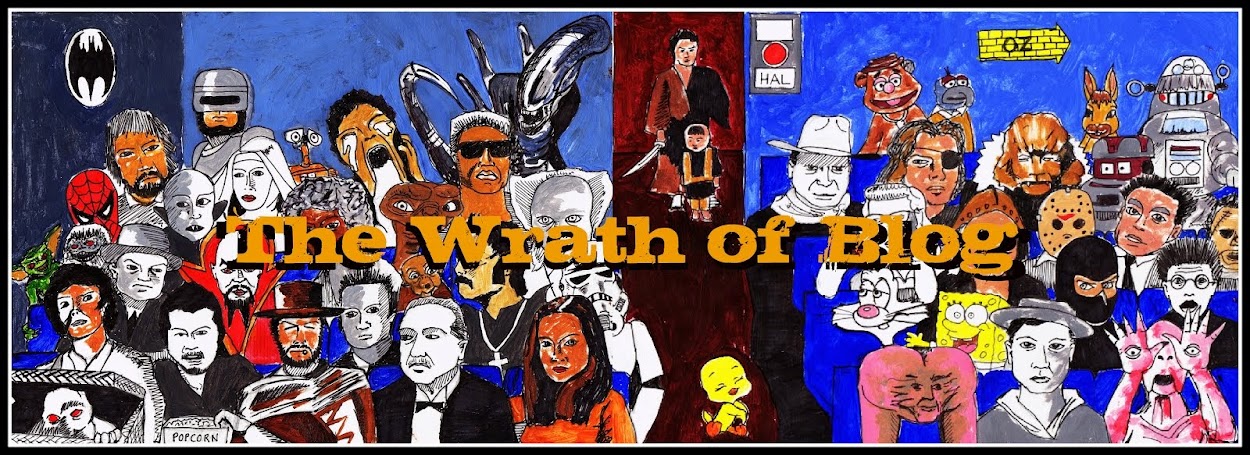 Another sub-genre exploded and created a huge batch of imitators, the Mondo cycle started in the 1960's with Paulo Cavara and Gualtiero Jacopetti's Mondo Cane (1962). With its use of documentary techniques, they delighted audiences with graphic depictions of exotic, bizarre, and archaic practises and incidents. However, as the market became flooded with imitation, the practices used to get the increasingly shocking images became questionable - these aggressive techniques even infiltrated news-media in the decade. What this means is that the creation of sensationalist stories (within the media and this cycle of pseudo-documentary/ethnographic expose), were often manipulated by the filmmakers, who would exploit the situation to make the story more interesting - exploitation which culminated in often horrific violence towards other humans. It is this element of pugnacious, and hostile form of reportage that inspired Deodato's new cannibal movie.
Another sub-genre exploded and created a huge batch of imitators, the Mondo cycle started in the 1960's with Paulo Cavara and Gualtiero Jacopetti's Mondo Cane (1962). With its use of documentary techniques, they delighted audiences with graphic depictions of exotic, bizarre, and archaic practises and incidents. However, as the market became flooded with imitation, the practices used to get the increasingly shocking images became questionable - these aggressive techniques even infiltrated news-media in the decade. What this means is that the creation of sensationalist stories (within the media and this cycle of pseudo-documentary/ethnographic expose), were often manipulated by the filmmakers, who would exploit the situation to make the story more interesting - exploitation which culminated in often horrific violence towards other humans. It is this element of pugnacious, and hostile form of reportage that inspired Deodato's new cannibal movie.The film could be said to be a two part structure. In the first we follow Harold Monroe (Robert Kerman), a New York professor, is lead into the Amazon jungles in search of a group of filmmakers who had disappeared some time previously. Here the group encounter a primitive cannibal tribe, and discover film cans, left behind. The second half of the film focuses mainly upon the screenings of the shocking footage captured by the ill-fated documentary makers. From this "found footage" the professor, television producers, and us film spectators are shown the increasingly hostile tactics used to get shocking and scandalous images of an apparent primordial tribe of viscous people. But what it fundamentally highlights is the possibly more horrific nature of modernity, as it uses violence for the purpose of entertainment and procurement of profit, and it is this barbarism that becomes the four-person teams demise, and catastrophic deaths.
A contentious issue with the film is the very real killings of animals on the screen, and this coupled with the special effects of human death, creates a disjointing juxtaposition making it appear entirely realistic. The woman who has been placed onto a stake which protrudes through her mouth appears very real. These juxtapositions also created much of the controversy surrounding the project, and even lead to the director being accused of killing the cast. Even in its native Italy, the film was accused of being a genuine snuff film. It is no mistake that Deodato was able to use realist film vocabulary techniques to offer a complete experience - he had worked as assistant director on several of Roberto Rossellini's films (the master of Italian neo-realism). The film was inevitably banned in almost every country, and vilified as grotesque exploitation. But this claim is to completely miss the point of the film.
The impact of this film still can be seen today. Whilst it is now belatedly getting the kind of critical acclaim that it deserves, it still has the power to agitate and appal anyone who watches it - it even manages to horrify some more fanatical gore-hounds. Besides this, the influence of the film can still be seen to this day. In 1999, The Blair Witch Project, arguably lifted Cannibal Holocaust's main premise, and the found footage concept is being exhaustively used to this day (Cloverfield (2008), TrollHunter (2010) and Chronicle (2012) to name just three). At last in the UK we are able to view the film in its entirety, and whilst the film is genuinely horrific, the importance of the uncut version will suggest that the "meaning" can be fully explored. It is an incredible achievement of horror cinema, and should be seen by everyone (well, I wouldn't show it to a child - even though I saw a version at a young age). Powerful, important cinema, with an incredible amount to say about the savagery of our modern times.
Directed by: Ruggero Deodato
Starring: Robert Kerman, Carl Gabriel Yorke, Francesca Ciardi, Perry Pirkanen
Country: Italy
Rating: *****
Marc Ivamy



No comments:
Post a Comment